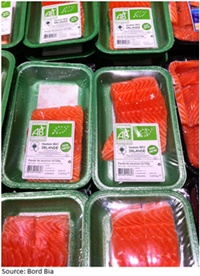
Sustainability is being taken more seriously for both tangible and intangible reasons. As an important part of brand value, retailers are now very much aware of the importance of having sustainability closely linked to their image.
Examples of this are the “Sustainable brand index” for Scandinavian markets where 24,000 consumers evaluate company brands annually. ICA won the title in Sweden in 2013 as both the Number 1 overall brand and retailer whereas Coop came in as leading retailer in 2014, ranking 3rd overall.

The Dow Jones Sustainability Index was launched in 1999 as the first global sustainability benchmarks which track the stock performance of the world’s leading companies in terms of economic, environmental and social criteria. The indices serve as benchmarks for investors who integrate sustainability considerations into their portfolios, and provide an effective engagement platform for companies who want to adopt sustainable best practices. In their 2013 report, Woolworths Australia were nominated as industry group leaders for the Food & Staples Retailing category whereas Nestle Switzerland was nominated as leader in the Food, Beverage, Tobacco group. Returns are therefore very tangible in the form of investors seeking to support leaders in sustainability.
The tangible importance of the issue is highly demonstrated in a recent article outlining scallop losses in Vancouver, where an aquaculture company lost 3 years production. According to the University of BC, the cause is probably due to low ph levels in water caused by carbon emissions. As retailers and food producers continue their journey towards sustainability for very tangible reasons, consumers will give more preference to sustainably produced goods as benefits of sustainable production become ever more evident.
Source: BordBia – Tangible Importance of Sustainability Highlighted




